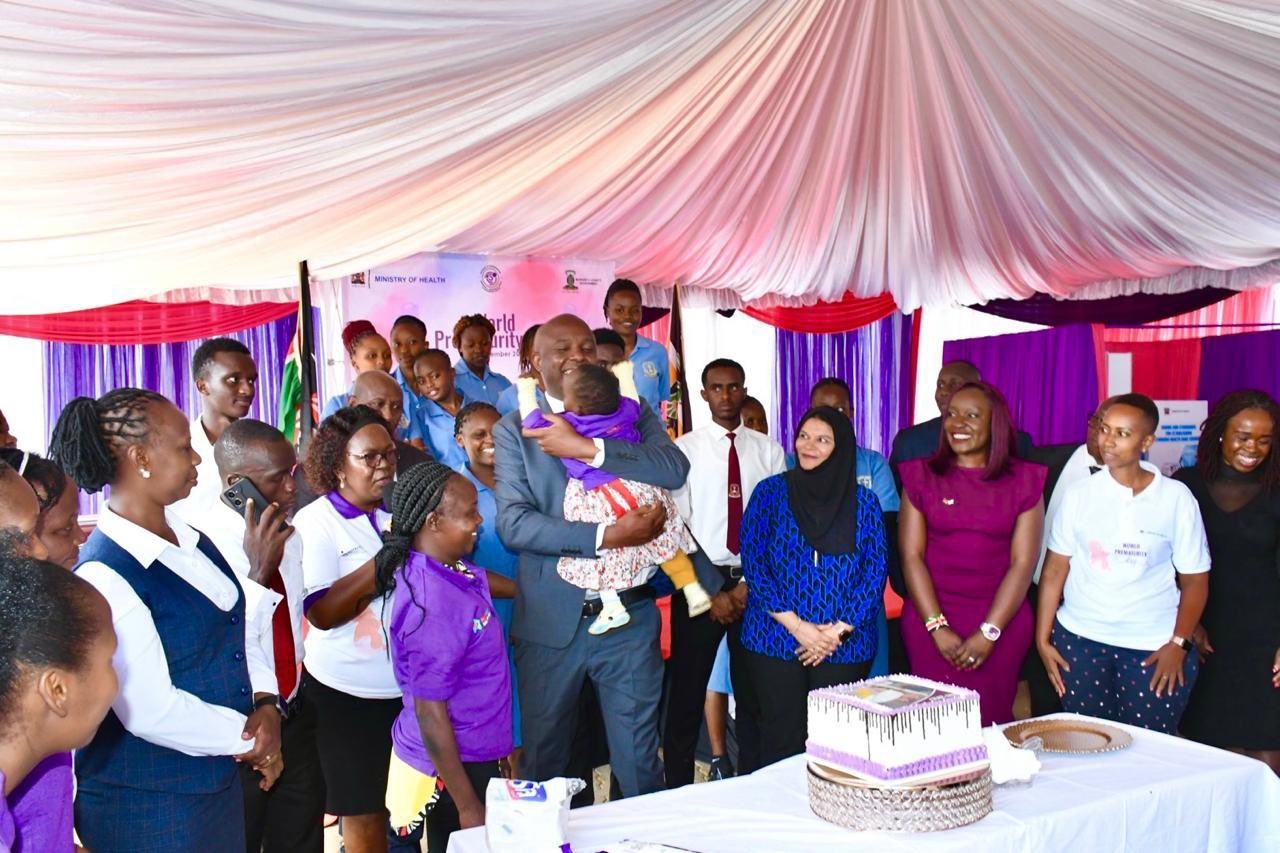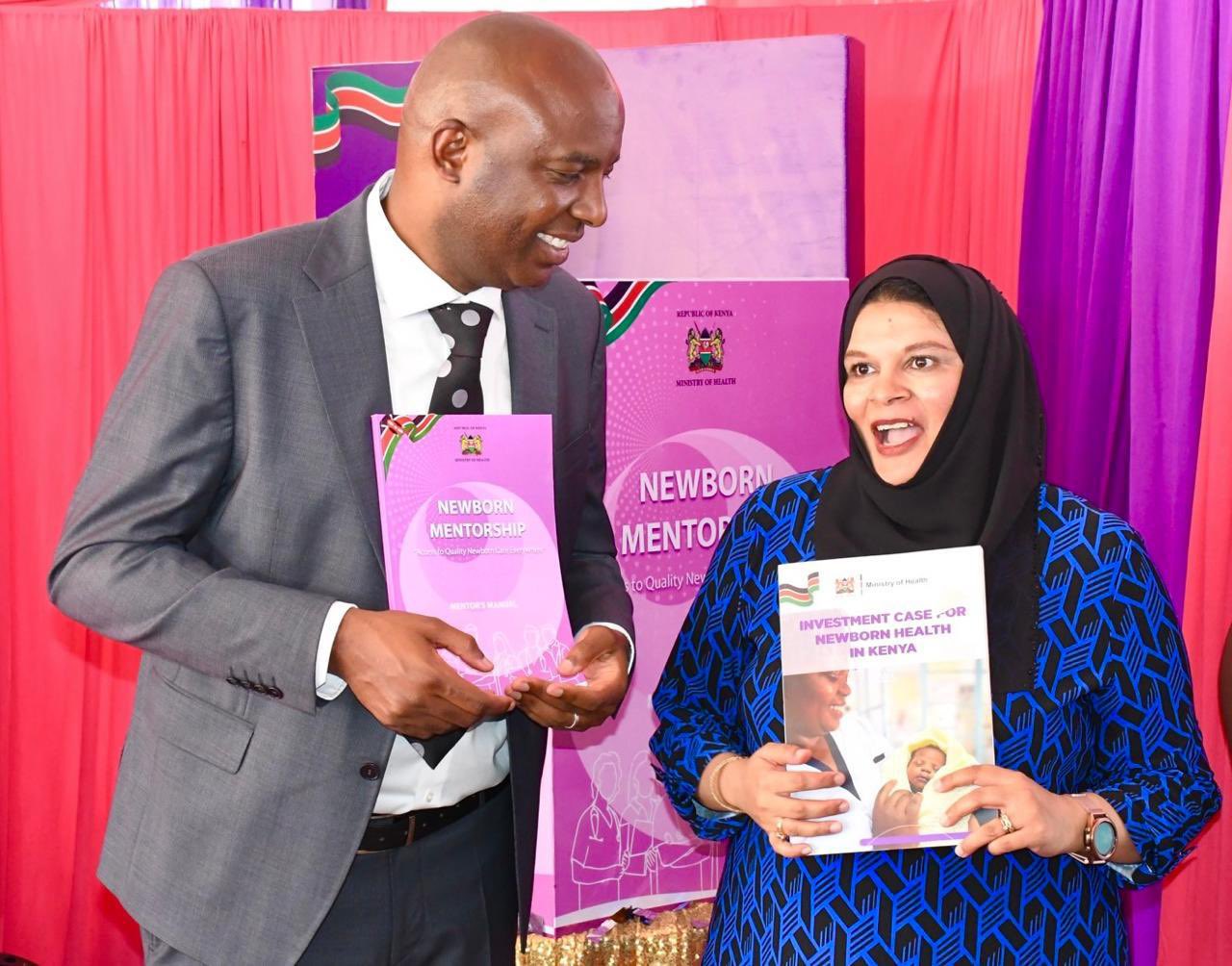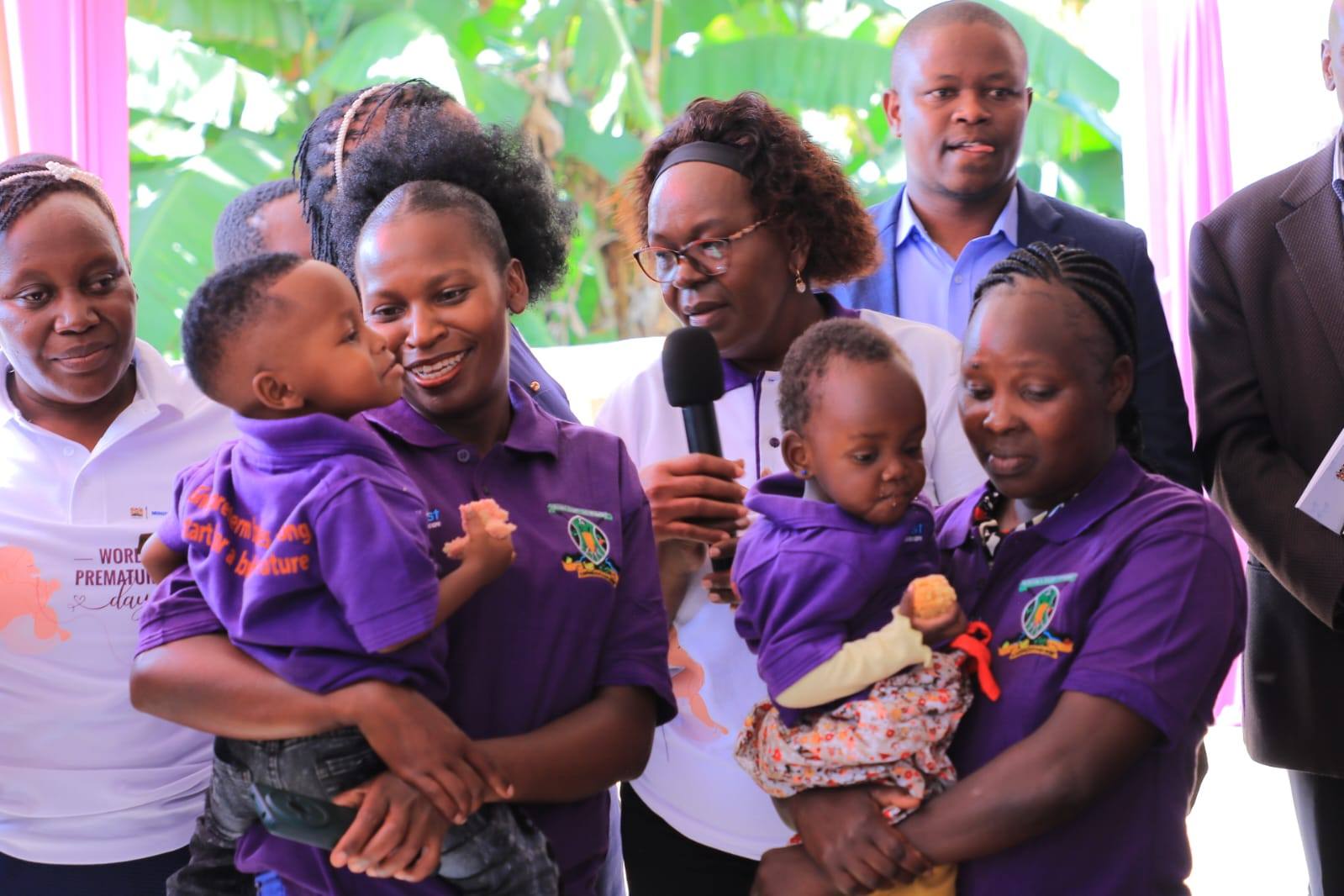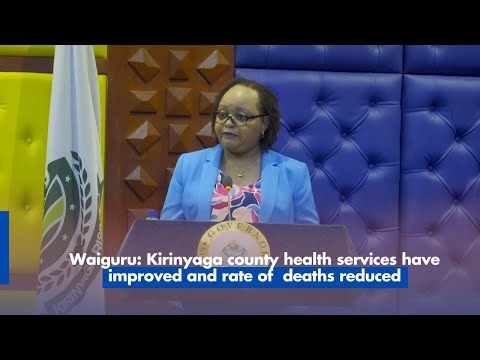
 Governor Irungu Kang'ata, with Director of Health Products and Technologies Dr Nazila Ganatra, launch the national Every Woman Every Newborn (EWENE) Acceleration Plan enablers during the World Prematurity Day celebrations in Murang'a/ALICE WAITHERA
Governor Irungu Kang'ata, with Director of Health Products and Technologies Dr Nazila Ganatra, launch the national Every Woman Every Newborn (EWENE) Acceleration Plan enablers during the World Prematurity Day celebrations in Murang'a/ALICE WAITHERAHealth sector players have expressed concerns over preterm births that are blamed for high neonatal deaths in the country.
Neonatal mortality accounts for 51 per cent of under five deaths and 66 per cent of infant deaths in Kenya.
Globally, one in 10 babies is born preterm, with only half surviving in low-income settings due to lack of feasible, cost-effective care, while nine out of 10 survive in high-income countries.
According to the World Health Organization, preterm births account for one million neonatal deaths globally and was the top cause of under-five mortality in 2022.
In Kenya, 92 children are born prematurely daily, significantly jeopardising their growth and survival, according to Juliett Omoha, the head of Newborn and Child Health Section in the Ministry of Health.
“Preterm births are the leading cause of death in children. This narrative has to change and it can only change with the collaboration of all partners,” she said during the World Prematurity Day celebrations at Murang’a Level 5 Hospital.
Health CS Aden Duale, in a speech read by Director of Health Products and Technologies Nazila Ganatra, said the number of preterm births is sobering but can be reversed with timely, high-quality and scalable interventions.
Duale announced that the country has completed the national Every Woman Every Newborn acceleration plan that is designed to stem preterm births from the community level to the subcounty and county health facilities.
The plan prioritises facilities’ readiness, health workers’ capacity, family support and public accountability to ensure no newborn is left behind.
“To move from plan to practice, we’re using this strategic day and location to launch the national enablers to implement it,” Duale said.
Among the enablers is the Kenya Newborn Investment Care that will see over 80 per cent of subcounty health facilities and all county hospitals upgraded to save tens of thousands of newborn lives by 2030.
The government is also working on a national mentorship package for newborn care that involves a low-dose, high-frequency model to build frontline skills within routine services.
The third enabler of the EWENE acceleration plan is the National Norms and Standards for Newborn Care that will ensure standard infrastructure, staffing, equipment, and protocols are maintained for consistent quality of care in all facilities.
 Mothers with children who were born preterm during the World Prematurity Day celebrations at Murang'a Level 5 Hospital
Mothers with children who were born preterm during the World Prematurity Day celebrations at Murang'a Level 5 HospitalUnder the plan, the government will integrate Community Health Promoters for early post-discharge follow-up and publish quarterly county EWENE scorecards so that gaps can be immediately addressed.
The CS however underscored the need for Kenyans to avoid some risky activities such as smoking, sedentary lifestyles and poor nutrition that increase the risk of preterm births.
Further, stakeholders highlighted the impact of immediate adoption of Kangaroo care after birth and strong family involvement in supporting mothers and newborns.
Martha Nyagaya, the country director of Nutrition International, a global organisation that fights against malnutrition, expressed concerns that surging teenage pregnancies in the country have been raising the prevalence of premature births.
The organisation has been supporting newborn and maternal health in 12 counties including Murang’a.
“Though we have realised increased hospital deliveries and developed a robust community support system, we still have a long way to go to stem premature births”.
She noted that the main causes of premature births include diseases affecting mothers during their pregnancies and aggravated by late ante-natal check-ups that delay the detection of the illnesses.
Mothers who give birth too soon after their previous pregnancy are also at risk of premature delivery as the subsequent pregnancy takes a toll on their bodies and immunity.
“We especially need to address the issue of teen pregnancies. These are children becoming mothers when they are too young and have no capacity to take care of their pregnancies and young ones”.
In Murang’a, an average of 20 to 30 preterm births are reported every month.
Nyagaya noted that the county grapples with all forms of malnutrition, including over and under nutrition, and micronutrient deficiencies that can lead to intra-uterine growth retardation, a key cause of premature births.
She said pre-term babies are predisposed to life threatening conditions such as respiratory distress and hypothermia that hamper their ability to realize their full potential.
Governor Irungu Kang’ata said his administration has upgraded mother and new born units in various local health facilities adding that they have increased incubators to support infants born prematurely.
He also noted that the county supports expectant mothers by providing with stipends to facilitate their travel to health facilities for ante-natal care.
The county government has also started giving free iron and folic acid supplements to expectant mothers in all health facilities to enhance their health.

















